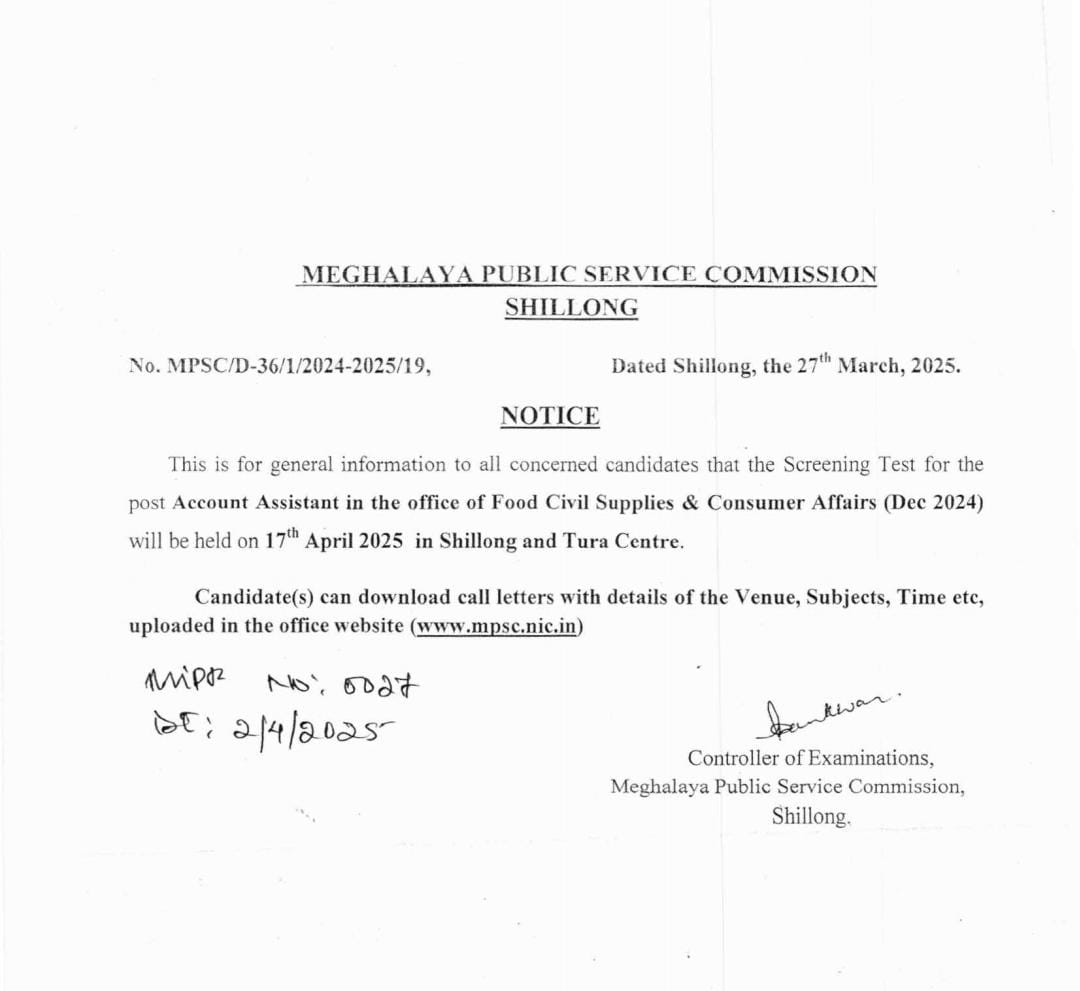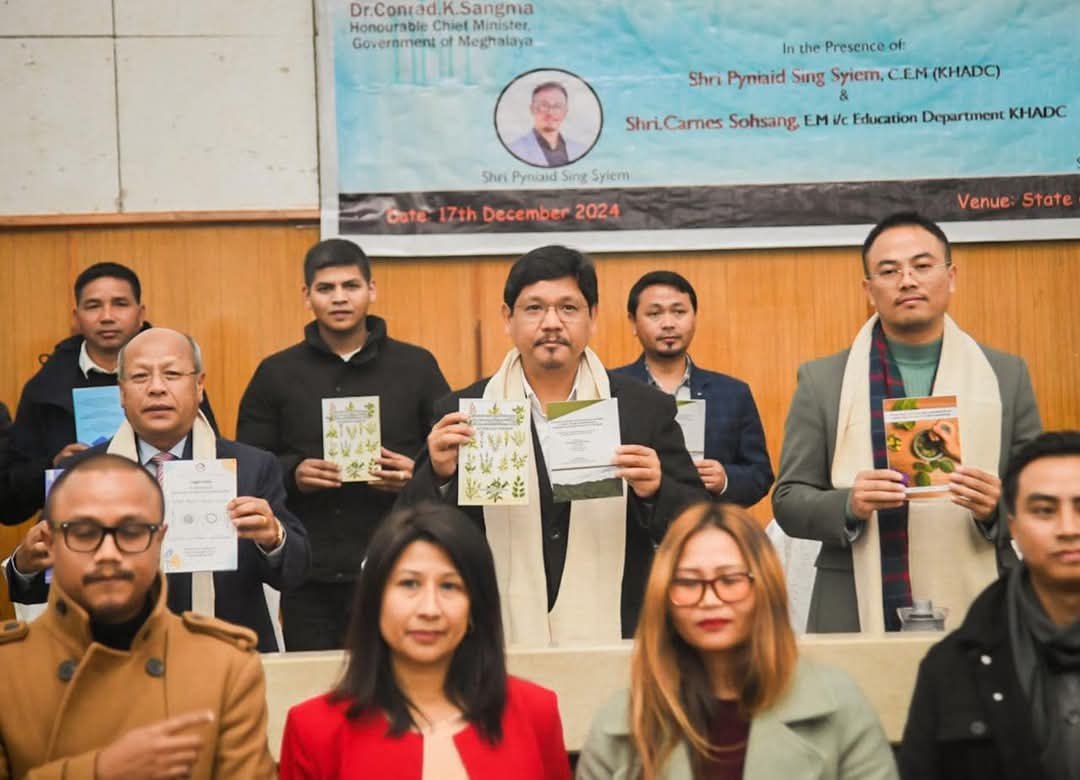Meghalaya Chief Minister Conrad Sangma on Tuesday informed that the state government would request Union Education Minister Dharmendra Pradhan to ensure that research-based books on Khasi culture and history are made accessible in libraries dedicated to tribal societies across India. He emphasized that this initiative would help promote understanding and knowledge of tribal culture nationwide.
Addressing the gathering, the Chief Minister said, “We will write to Education Minister Dharmendra Pradhan requesting him that at least some, if not all, of these books should be procured and kept in sections meant for our tribal society in different parts of the country.”
“People need to read, people need to understand, people need to know. This research and hard work that you’ve put in should bear fruit and hopefully open doors for even larger research in the future,” said Sangma while attending a program organized by the Khasi Hills Autonomous District Council (KHADC) for the launch of books based on research papers about Khasi culture and history.
Highlighting the importance of accessibility, the Chief Minister added, “I will be directing the Education Department to ensure that all these researched books are made available in the libraries of colleges, schools, and universities in our state at the very least.”
Sangma commended the leadership and vision of the KHADC Chief Executive Member (CEM), recalling the initial discussions about the project. “This is a very special moment. I want to put on record the leadership and vision that the CEM of KHADC has brought, not just to this program but to the Khasi Hills Autonomous District Council as a whole. I still remember that afternoon about a year ago when the CEM, along with members of the KHADC, presented this project to me. It immediately caught my attention. I even suggested that once KHADC successfully executes this, we must encourage the Jaintia Hills and Garo Hills Autonomous District Councils to follow suit. Today, seeing this idea come to fruition and holding the books in my hand is a moment of great satisfaction,” he said.
He also shared insights from his conversation with Prime Minister Narendra Modi, emphasizing the potential of tribal societies in contributing to global solutions. “The Prime Minister was very particular about the knowledge embedded in tribal societies. Tribal culture has so much to offer to the world. Sometimes, we tend to overlook or take it for granted, but traditional knowledge and practices can address some of the global challenges we face today, whether in environmental governance or traditional medicine. For example, I saw a book that explores governance through traditional practices and another that connects traditional medicine and healing with health tourism. These are incredible ideas that can bring immense value to society and the world at large,” he remarked.
He further reflected on the richness of Khasi culture and the depth of research captured in the books. “There’s a book on the matrilineal system—how it came into place and how it conflicts with modern society. Another talks about the marriage practices of the Khasi community. There’s one on medicinal plants and traditional healing. These books demonstrate what we can offer to the world. But without proper documentation and professional research, we cannot present these to the Prime Minister, the Government of India, or international platforms,” Sangma stressed.
The Chief Minister also spoke about the state government’s commitment to fostering research. “When the CEM brought this proposal, it didn’t take a second to decide. We immediately approved it. This also gave me the idea to initiate a Research Grant at the government level. As you know, the Government of Meghalaya has provided a ₹3 lakh grant through the Art and Culture Department. Currently, we are promoting close to 40-50 researchers, but we intend to expand this because there is so much to explore,” he added.
Expressing optimism about the future, Sangma said, “What we are doing today is like sowing a small seed. These thin books written by scholars could start something big, encouraging researchers from outside to come and explore what’s happening here. I hope we move beyond culture to language, music, historic places, and the overall history of our state. I encourage young researchers and scholars to document and preserve this knowledge for future generations.”
The program, organized by KHADC, saw the launch of 17 books, part of a project comprising 34 titles aimed at codifying Khasi customary laws and preserving cultural heritage. The state government sanctioned ₹50 lakhs for the initiative, inviting scholars to contribute to the research. These books are expected to play a vital role in codifying laws brought forward by the District Council, further strengthening the foundation of tribal knowledge and governance.


